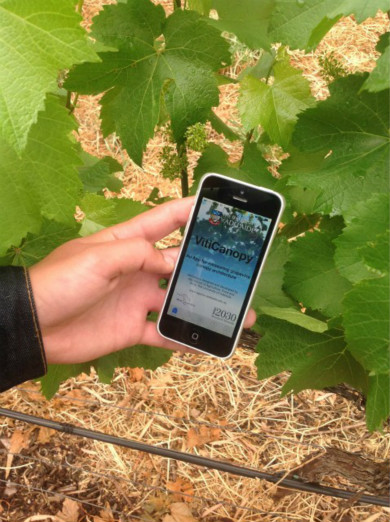Date£º
2016-01-08 15:47 Source£º
thedrinksbusiness Author:
Lauren Eads Translator:
Two free apps developed by the University of Adelaide to help viticulturists digitally assess the impact of powdery mildew on the price and quality of their grapes and guide canopy management are now available to download.

Part of a wider research project supported by Wine Australia, PMapp is designed to help growers, consultants, wineries and researchers assess powdery mildew on grape bunches.
Powdery mildew is a common disease that affects vines, stunting bud development and shoot growing. When it appears on grapes it can cause them to split and can strip them of their fruity flavours producing a mouldy bitter taint in wines.
¡°While our primary focus is on developing objective molecular and spectroscopic measures for powdery mildew, we all acknowledge that assessing disease visually in the field, and sometimes also at the winery, is going to be with us for some time¡¯, said Professor Eileen Scott, deputy head of the University¡¯s School of Agriculture, Food and Wine.
¡°The aim was to create a simple tool that will allow assessors to capture information more accurately and efficiently in the vineyard and improve their disease assessment skills.¡±
The app allows the user to enter severity scores for powdery mildew as they assess each bunch, with the app collecting a running total of bunch count and cumulative incidence of disease for analysis.
A second app, VitiCanopy, allows users to take pictures of their vineyard canopy which are then analysed by the app using ¡°canopy architectural parameters¡± based on key algorithms initially developed for the forestry industry. The app is capable of analysing a canopy photograph to determine details such as leaf area index and canopy porosity.
The VitiCanopy app is part of a larger Wine Australia project involving the University of Adelaide and University of Melbourne with support from Treasury Wine Estates and DJs Growers.
One of the project¡¯s leaders, postdoctoral research fellow Dr Roberta De Bei, described the app as ¡°the first part of the toolkit¡± the team wanted to develop.
¡°It looks at structure and vigour of the canopy and allows you to calculate some measures that are used to decide if the vine is in balance or not¡±, she said. ¡°The challenge was getting code that¡¯s been written for complex, expensive software and putting it into an iPhone or iPad that is easy to use and with us every day¡±.
Both apps are available to download at the Apple App Store for iPhones and Google Play for Android.